Happy Tuesday! We’re hosting our first Premium Town Hall meeting tonight at 8 p.m. ET. You’ll be able to ask your favorite Dispatchers all your burning questions—but remember, you can only attend this intimate gathering if you’re a Dispatch Premium member.
But good news! There’s still time to become a Dispatch Premium member and register for this exclusive live digital event. Upgrade your membership now and we’ll send you the registration link. It’s sure to be a great time!
Quick Hits: Today’s Top Stories
- South Korean President Yoon Suk Yeol was on Monday barred from leaving the country by his own ministry of justice. The department is investigating him for briefly declaring martial law last week, on the suspicion that his actions—which included no notification of lawmakers and the use of soldiers to remove legislators from the National Assembly—amount to leading an insurrection. Yoon, himself a former prosecutor, survived an impeachment vote over the weekend, and it remains unclear whether he will resign his post.
- Police in Altoona, Pennsylvania, apprehended 26-year-old Luigi Mangione on Monday as a “strong person of interest” in the investigation into the midtown Manhattan shooting of UnitedHealthcare CEO Brian Thompson last week. Mangione, who was arrested on weapons charges while eating at a McDonald’s, was found with a gun similar to the one used in the shooting and a handwritten document expressing “ill will towards corporate America,” according to NYPD Detective Joseph Kenny. Mangione was charged in Pennsylvania with two felonies and several misdemeanors related to the weapon and fake IDs, and later charged in Manhattan with murder. He hails from Baltimore and is a recent graduate of the University of Pennsylvania, with a last known address in Hawaii. He had liked online posts expressing support for the views of Ted Kaczynski, the Unabomber.
- A commissioner in Nevada blocked media tycoon Rupert Murdoch’s attempt to amend his trust to ensure that his son, Lachlan Murdoch, would retain executive control over much of the Fox media empire, boxing out Lachlan Murdoch’s less conservative siblings. The commissioner, Edmund J. Gorman Jr., ruled that Rupert Murdoch had acted in “bad faith” to change the terms of his trust, which currently makes Lachlan and his three siblings equal beneficiaries. The decision will be appealed, according to Rupert Murdoch’s lawyer.
- Syrian Prime Minister Mohammad Ghazi al-Jalali said Monday that his government was “working so that the transitional period is quick and smooth,” after a coalition of rebel groups toppled dictator Bashar al-Assad’s regime, forcing him to flee the country over the weekend. United Nations officials claimed that government services had come “to a complete and abrupt halt” as frightened state employees refused to come to work. Meanwhile, the Israeli military confirmed on Monday that it had conducted airstrikes on Syrian chemical weapons sites and missile caches over the weekend to prevent them from falling into rebel hands.
- Lara Trump, the co-chair of the Republican National Committee and President-elect Donald Trump’s daughter-in-law, announced on Monday that she was resigning from her position as RNC chairwoman. Serving since March with Co-Chair Michael Whatley, Lara Trump invested heavily in recruiting volunteers and lawyers for an “election integrity effort” and played a major role in the GOP retaking the Senate during the 2024 elections. On Sunday, she told the Associated Press that being appointed to fill Sen. Marco Rubio’s Senate seat, should he be confirmed as secretary of state, was “something I would seriously consider.”
- A New York City jury on Monday acquitted Daniel Penny of the charge of criminally negligent homicide, ending a criminal prosecution that began in May 2023, after a mentally disturbed and homeless rider, Jordan Neely, died following an altercation with Penny on the subway during which Penny restrained Neely with a chokehold. The case became a national story after the video of the incident went viral, sparking debates over vigilantism, untreated mental illness, and race relations. Penny is white and Neely was black.
- A Haitian human rights group said that at least 110 people had been killed over the weekend in the capital of Port-au-Prince by a gang leader who accused them of practicing witchcraft. The leader, Monel Felix, also known as Mikano, directed his men to round up and kill groups of mostly elderly people in the neighborhood of Cité Soleil after being told by a Voodoo priest that his son’s illness was caused by “witchcraft.” U.N. officials put the death toll of this weekend’s violence closer to 200 people, the latest episode in the ongoing lawlessness in the island country.
- Lawyers for popular video-sharing app TikTok asked a federal court on Monday to temporarily block the implementation of a law passed by Congress that would force its Chinese parent company to sell the app or have it be banned from the United States, pending a Supreme Court decision on the law. On Friday, a panel of federal circuit judges unanimously ruled that the divestment law is constitutional and does not infringe on the First Amendment or other constitutional concerns raised by TikTok. The company has signaled it’s likely to seek the Supreme Court’s intervention.
- The Supreme Court on Monday declined to wade into several controversial cases touching on social issues, rejecting cases involving public school transgender policies, race-based admissions at selective Boston public schools, and the prosecution of a man from Hawaii for carrying a handgun without a license. Justices Samuel Alito and Clarence Thomas dissented in both school decisions, with Alito writing that he was “concerned that some federal courts are succumbing to the temptation” to rely on standing arguments to avoid weighing in on cultural issues, as the transgender case arose from a federal court rejecting the standing of parents whose children were not directly affected.
Give the gift of sensible conservatism this holiday season

Inching Closer to a TikTok Ban

Your Morning Dispatchers have spent years covering the “will they, won’t they” debate over banning TikTok, the wildly popular video-sharing app (and have made some variation of the pun about the clock “ticking for TikTok” a frankly embarrassing number of times). And for years, the idea has seemed like the dog that won’t hunt.
After a federal appeals court in Washington, D.C., last week ruled against TikTok’s challenge to a law that would see the video app booted from the U.S. in January if its Chinese owner doesn’t divest, a ban looks more likely than ever—not that we’d bet on it, after all we’ve seen. TikTok on Monday filed a last-ditch effort to stay the ruling to give the Supreme Court a chance to weigh in on the issue—or President-elect Donald Trump the chance to block the law—though it’s not clear whether the gambit will succeed.
Policymakers have long been wary of TikTok over concerns about the app’s ownership by ByteDance, a Chinese company. National security hawks argue that via ByteDance, the app, its algorithm, and all of its user data, are inextricably linked to the Chinese Communist Party (CCP), which has tight control over Chinese tech companies through its sweeping national security laws. There are also strong indications—though no definitive, publicly available evidence—that the CCP has meddled with the app’s algorithm to advance its own propaganda ends.
The U.S.-based TikTok operation has claimed there’s a firewall between it and ByteDance—though there’s reason to doubt just how impenetrable it is—and has argued the app serves as an indispensable venue for protected free speech for its 170 million U.S. users, a position supported by free speech organizations like the Foundation for Individual Rights and Expression.
There were plenty of false starts in early efforts to ban the app or force its sale, including under the Trump administration in August 2020. And the executive branch spent years in discussions with TikTok about whether and how it could sufficiently address the government’s national security concerns. China pushed back on those attempts to take ByteDance out of the picture by effectively instituting export controls protecting TikTok’s algorithm and making it nearly impossible for ByteDance to sell the company with its content recommendation algorithm—perhaps the key to its success—to a foreign buyer.
But the latest chapter in the saga began earlier this year, when the leaders of the House Select Committee on the Chinese Communist Party negotiated a compromise bill that President Joe Biden signed into law after Congress passed it on a bipartisan basis in April. As we explained earlier this year:
The bipartisan national security and foreign aid package that Biden signed late last month included the Protecting Americans From Foreign Adversary Controlled Applications Act, which gives ByteDance 270 days to divest its ownership stake from TikTok. If it fails to do so, Congress will enforce a ban by threatening a penalty against the application, as well as vendors like app stores and website hosts that work with the app. In TikTok’s case, the penalty—$5,000 multiplied by the number of U.S. users of the violating app—would add up to somewhere in the neighborhood of expected 2024 U.S. defense spending.
The bill specifically names both ByteDance and its subsidiary as unacceptable owners. But it also includes the potential to force divestment for other technology and social media companies that are “controlled by a foreign adversary”—meaning China, Russia, Iran, or North Korea—or that the president determines “present a significant threat to the national security of the United States.” The bill itself does not condition divestment on the speech produced on the application or website, but rather on control and ownership of the website or app.
TikTok’s 270 days expire on January 19, 2025, one day before Trump takes office.
After the divestment bill became law, TikTok sued to have it declared unconstitutional, arguing that the law should be understood as a de facto ban and violated the First Amendment, Fifth Amendment guarantees of due process, as well as the Constitution’s protections against bills of attainder—or laws that declare one guilty of a crime without a trial.
But a unanimous panel of judges—appointed by President Ronald Reagan, Barack Obama, and Donald Trump—on the D.C. Circuit of the U.S. Court of Appeals wasn’t buying it. In fact, Chief Circuit Judge Douglas Ginsburg shot down every one of TikTok’s complaints against the law. And as it relates to the First Amendment concerns, two of the three judges did so under the highest level of “scrutiny,” legalese for the highest threshold the courts can apply. According to the court, the law was content-neutral and sufficiently narrowly tailored to satisfy free speech concerns even as the government’s national security case was overwhelming and convincing.
Applying that high standard of scrutiny is a way of insulating the decision. “This strengthens the case, because it avoids the problem that sometimes happens where a court will uphold something on a low standard review, and then the reviewing court will say, ‘Ah, but you should have used the higher standard review, so now go back and redo your work.’ Obviously, that can’t happen here,” said Alan Rozenshtein, an associate professor at the University of Minnesota Law School and a former Justice Department lawyer who worked on cybersecurity and foreign intelligence issues.
The two judges who applied “strict” scrutiny were saying, “we’re not watering down our First Amendment jurisprudence here,” our old friend David French says on today’s episode of Advisory Opinions. “We are saying that this is so important and so compelling, combined with narrowly drawn, that it passes the strictest level of judicial inquiry.”
The decision showed deference to the Justice Department’s arguments—based on unclassified, publicly available information—about the threat TikTok poses to national security. “We are sensitive to the risk of a foreign adversary exploiting corporate form to take advantage of legal protections in the United States,” Ginsburg wrote.
The potential burden on American users if TikTok is ultimately banned is “attributable to the [People’s Republic of China’s] hybrid commercial threat to U.S. national security, not to the U.S. Government, which engaged with TikTok through a multi-year process in an effort to find an alternative solution,” Ginsburg concluded. “The First Amendment exists to protect free speech in the United States. Here the Government acted solely to protect that freedom from a foreign adversary nation and to limit that adversary’s ability to gather data on people in the United States.”
On Monday, TikTok pushed back, filing a request for an emergency stay to keep the law from going into effect while it appeals the ruling to the Supreme Court. Rozenshtein said it’s likely such a stay would be granted as a way to allow litigation to fully play out before the law goes into effect.
But assuming the appeals court does grant the injunction, pausing the law’s enforcement, it’s an open question whether the Supreme Court would agree to hear the case. “I think it will because this is such an important case and this will be such a seminal First Amendment decision, and that’s literally what the Supreme Court’s job is,” Rozenshtein told TMD. “So it will want to have the last word on this, especially given all these other First Amendment cases, or digital First Amendment cases, that it’s taken the last few years.”
But our own Sarah Isgur is not so sure. “On an emergency petition, where Congress has acted in a bipartisan fashion, the district court and a unanimous panel all agree—I don’t see a world in which that emergency petition does much,” Sarah said. “In fact, I’d be surprised if we see a dissent. It’s possible we could see a statement, but even then, I’ll be surprised. I think that one’s just going to be a ‘no.’” But if the court does take up the case, Sarah, David, and Rozenshtein judge it’s likely to uphold the D.C. Circuit Court’s decision.
As ever, though, Trump could prove a wild card in the question of whether TikTok actually sees a ban come into effect—assuming no divestment is in the works, which seems unlikely at this point. Once he’s sworn in as president on January 20, it’s possible that Trump could defang the law, telling Apple, cloud computing company Oracle, and other U.S. tech companies that his Justice Department won’t enforce the penalties associated with the legislation, which is still a precarious position for both TikTok and the vendors who could be punished under the law, should the president later change his mind. He could also try to press congressional Republicans to repeal the law, but it’s not clear he’d be successful when the original bill had such overwhelming bipartisan support.
But will Trump do any of those things? His administration was the first to try to institute a ban on the app, but the president-elect has since changed his tune on TikTok. “There’s a lot of good and there’s a lot of bad with TikTok, but the thing I don’t like is that without TikTok, you’re going to make Facebook bigger, and I consider Facebook to be an enemy of the people, along with a lot of the media,” he said in March.
Trump’s pick for national security adviser, Rep. Mike Waltz of Florida, said Friday that Trump “wants to save TikTok,” adding, “We absolutely need to allow the American people to have access to that app but we have to protect our data as well.” Asked by Kristen Welker of NBC’s Meet the Press on Sunday whether he would move to save TikTok, Trump obfuscated: “I used TikTok, so I can’t really, you know, I can’t totally hate it. It was very effective. But I will say this, if you do do that, something else is going to come along and take its place.”
“I’m going to try and make it so that other companies don’t become an even bigger monopoly,” he added when pressed.
But if personnel is policy, Trump’s hawkish national security picks—including secretary of state nominee Sen. Marco Rubio, who’s repeatedly raised national security concerns over TikTok—could mean support for a ban going forward. “I think the question that’s underpinning all of this conversation is, ‘Is Donald Trump going to save Tiktok without forcing them to change, without forcing them to divest from CCP control?’” said Michael Sobolik, a senior fellow in Indo-Pacific studies at the American Foreign Policy Council and a proponent of the TikTok divestment bill.*
Waltz’s presence on the foreign policy team, and his statement on Friday, make Sobolik think the divestment law might be allowed to stand. “His comments, recognizing that the goal is twofold,” is encouraging for backers of the law, Sobolik said. “It is not singularly to save TikTok; it’s to keep TikTok operational, but to do it safely.”
Worth Your Time
- Writing in The Atlantic, Caitlin Flanagan “reviews” Irish poet Seamus Heaney’s newly published letters—but it’s really a look into her family’s long friendship with the Heaneys, spanning all the way from Berkeley to Belfast, from the counterculture to the Troubles. “So many of Seamus’s letters in the collection begin in apology—over and over again, he makes amends for being so egregiously late in responding to someone,” she wrote. “And yet, not 10 days after [her breast cancer] diagnosis, a letter arrived from Seamus and Marie. They were aghast at the completely ‘arbitrary insult upon health and beauty.’ Soon after, another letter: He’d heard I’d come through surgery, ‘as valiantly and gracefully as the great spirit you are and have been’ … Everyone who knew Seamus has a story like that. He had a sense of obligation to others that anyone else would be incapacitating.”
- Michael Horowitz argued in Foreign Affairs that unmanned weapons systems have broken down the traditional military dichotomy between “mass” and “precision” weapons: “The wheel has turned once again,” he wrote. “The United States no longer enjoys the vast lead in precision strike capabilities that it once did. The technology underlying those capacities—conventional munitions, sensors, and guidance systems—has become cheaper over time and accessible to many countries and militant groups beyond the United States. From Azerbaijan to North Korea, other forces can strike some targets with the precision, power, and range that were once the preserve of the U.S. military. They have benefited from advances made in the private sector in artificial intelligence and the widening availability of sensing and communications platforms, such as global positioning systems. With this proliferation of know-how, technology, and weaponry, warfare is changing.”
Presented Without Comment
BBC: Donald Trump Says Prince William ‘Looks Better in Person’
In the Zeitgeist
Monday was a tough day for our friend and colleague—and TMD alum—James Scimecca, who also happens to be a Yankees fan. His team on Sunday lost star outfielder Juan Soto to the rival New York Mets in what, for good measure, was the largest player contract in the history of Major League Baseball and pro sports, to boot: a 15-year, $765 million deal to play in Queens instead of the Bronx. Pour one out for James—but not for the Yankees, because they are still the Yankees.
Toeing the Company Line
- In the newsletters: Kevin took on misconceptions (🔒) about health insurance and Nick discussed Biden’s near-total absence from the end of his presidency.
- On the podcasts: Sarah and David are joined by Tennessee Attorney General Jonathan Skrmetti to discuss the future of his state’s ban on gender transition treatment for minors on Advisory Opinions.
- On the site: Joel Tannenbaum explains RFK Jr.’s exaggerated claims about the health benefits of and exaggerated warnings against different food items, such as raw milk, seed oils, and food dyes. Plus, Chris suggests that Biden should pardon Trump for the sake of moving forward.
Let Us Know
Are you in favor of the TikTok divestment, and where do you think Trump will ultimately come down?
Correction December 10, 2024: A previous version of this newsletter misidentified Michael Sobolik’s affiliation.



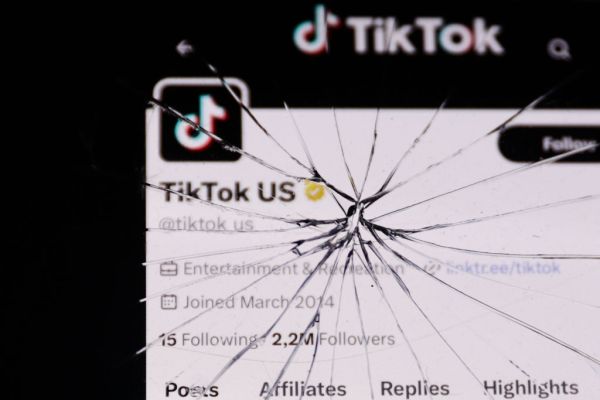
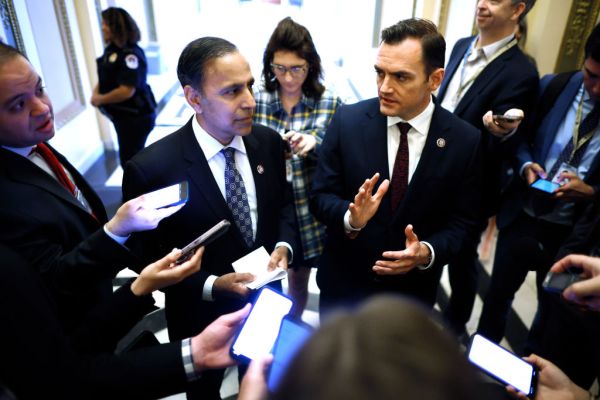
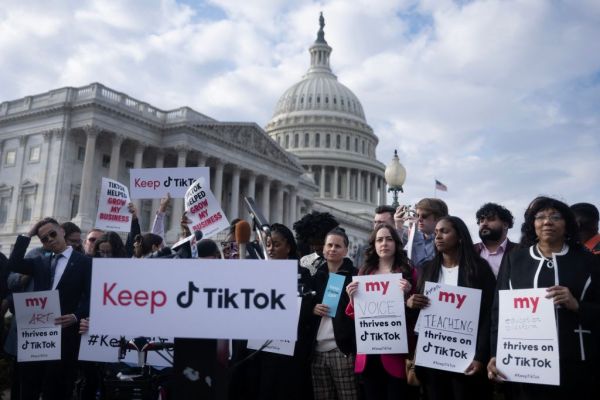

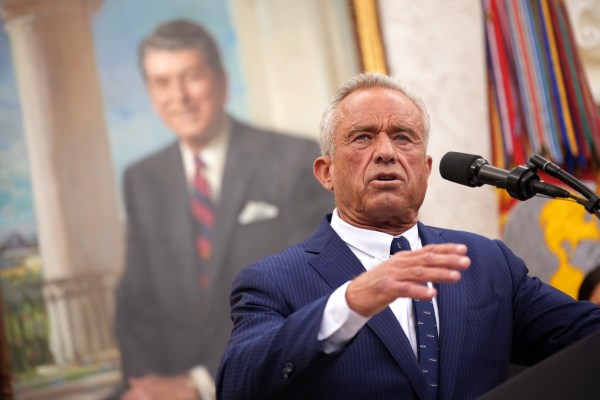

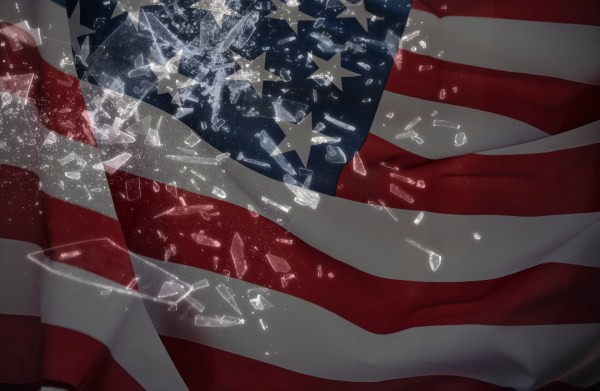

Please note that we at The Dispatch hold ourselves, our work, and our commenters to a higher standard than other places on the internet. We welcome comments that foster genuine debate or discussion—including comments critical of us or our work—but responses that include ad hominem attacks on fellow Dispatch members or are intended to stoke fear and anger may be moderated.
With your membership, you only have the ability to comment on The Morning Dispatch articles. Consider upgrading to join the conversation everywhere.